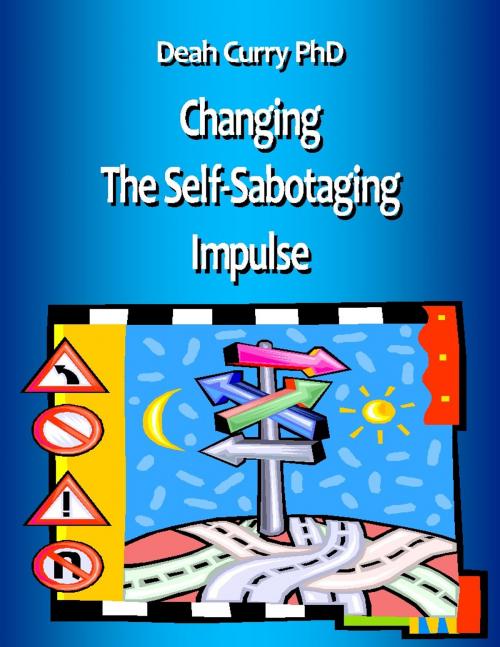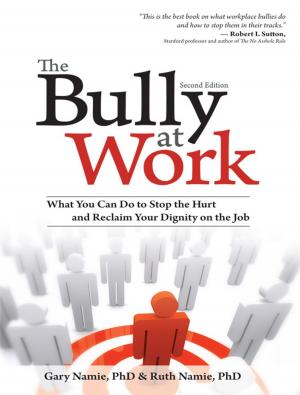Changing the Self-Sabotaging Impulse
Nonfiction, Health & Well Being, Psychology, Mental Health, Self Help, Self Improvement, Motivational| Author: | Deah Curry PhD | ISBN: | 9781476432373 |
| Publisher: | Deah Curry PhD | Publication: | July 4, 2012 |
| Imprint: | Smashwords Edition | Language: | English |
| Author: | Deah Curry PhD |
| ISBN: | 9781476432373 |
| Publisher: | Deah Curry PhD |
| Publication: | July 4, 2012 |
| Imprint: | Smashwords Edition |
| Language: | English |
Did you know there are at least 8 ways that even normal people sabotage our best intentions?
Self-sabotage can affect any area of life, and even masquerade as a smart way to be. It could be a possible diagnostic sign of generalized anxiety or neurosis, a particular kind of mood or personality or dissociative disorder, or some other condition classified as a mental illness.
Or, in an otherwise healthy individual, self-sabotage can be viewed as a tension between explicit goals and implicit beliefs. That is, it’s seen as a repeated and ineffective action sourced in the discrepancy between what we say we want, and what we unconsciously believe we can have.
This article gives a brief explanation of 8 typical types of self-sabotage and shows how they involve hidden beliefs and the seduction of fast payoffs that keep us from getting what we really want. A holistic process for shifting self-sabotage into sustainable change is provided.
Did you know there are at least 8 ways that even normal people sabotage our best intentions?
Self-sabotage can affect any area of life, and even masquerade as a smart way to be. It could be a possible diagnostic sign of generalized anxiety or neurosis, a particular kind of mood or personality or dissociative disorder, or some other condition classified as a mental illness.
Or, in an otherwise healthy individual, self-sabotage can be viewed as a tension between explicit goals and implicit beliefs. That is, it’s seen as a repeated and ineffective action sourced in the discrepancy between what we say we want, and what we unconsciously believe we can have.
This article gives a brief explanation of 8 typical types of self-sabotage and shows how they involve hidden beliefs and the seduction of fast payoffs that keep us from getting what we really want. A holistic process for shifting self-sabotage into sustainable change is provided.















